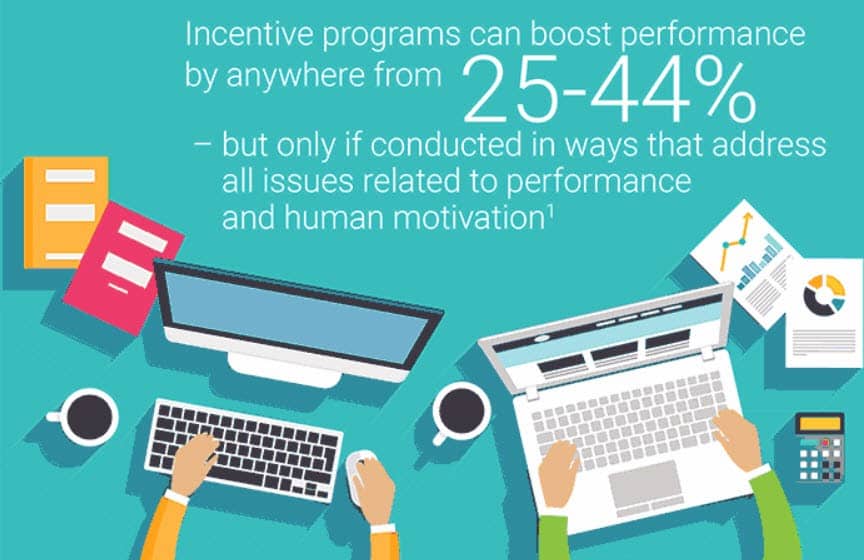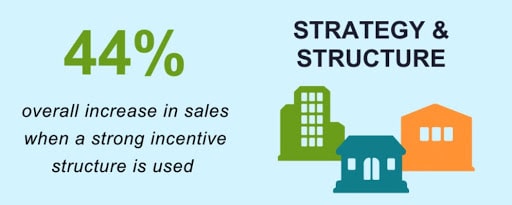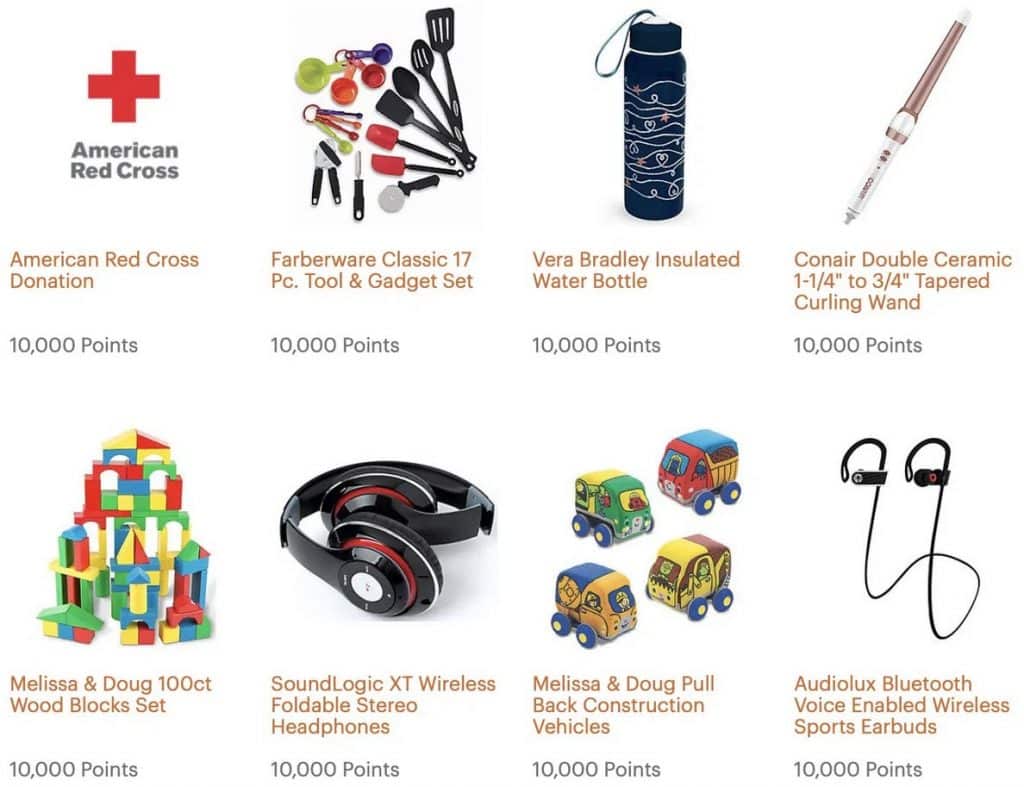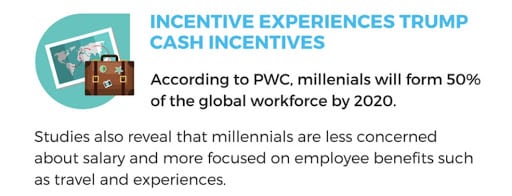In recent years, the approach to business-to-business sales has significantly changed. While it always had a longer sales cycle and a focus on relationships, B2B sales is now more consultative. It requires a custom approach to every customer, which demands a lot of thought and time.
So how do you keep your sales team focused and motivated? If you’re looking for ways to improve B2B sales results, it might be time to start offering incentives or improving your current incentive system. Below, we cover everything you need to know about the B2B sales incentives that boost company growth.
Why you should offer B2B sales incentives
When it comes to sales, companies usually focus on their relationship with B2B customers. However, equally as important is how you engage your employees. Offering incentives to your sales team isn’t just a matter of generating sales or giving employees the opportunity to earn a little extra.
In fact, studies show non-cash rewards and recognition may even be more beneficial. Here are a few other ways B2B sales incentives may help your company:
Increase sales team motivation
Every business owner wants employees to stay motivated. However, this is sometimes difficult to sustain. If you notice unmotivated sales employees are leading to stagnant results, it might be time to offer an incentive program. Not only do these types of programs challenge employees to achieve higher goals and improve their B2B sales skills, they also show the company cares enough to reward and recognize their efforts.
Promote teamwork
Instead of creating opposition, the right incentives can serve to promote teamwork within your sales department. This is especially true for non-cash incentives, such as concert tickets or a new iPad. Seeing a teammate be recognized and rewarded for their efforts is viewed as a cause for celebration.
In addition, you can also offer group or team-based rewards to promote collaboration, pride in their work, and community within the company.
Boost employee retention
Another problem business owners face is how to effectively retain employees. One study found that it costs a company 200% more to replace a highly-trained employee than it does to keep them on board. This is aside from the added time and effort it will take to train the eventual new employee.
To avoid high turnover rates, and build loyalty among your staff, it’s important to show appreciation for your employee’s efforts. B2B sales incentives, whether they’re cash or non-cash, are an effective way to do this. Offering good employee benefits is another way to retain your employees, as it makes them feel more appreciated in your organization.
Attract top talent
As your company grows, it’s important to make sure you continue to attract top talent. Offering an attractive incentive program, on top of the expected salary and commission, helps guarantee your pick of the employee pool.
How to create effective B2B sales incentives
Now that you know the benefits of B2B sales incentives, it’s time to start putting together an effective incentive program. While there are many factors involved, and the right program differs with every sales team, here are some recommended steps to get started:
Include your team in the incentivization process
To find out what incentives will increase sales and motivate your team, why not ask them? Not only will you find out exactly what they want, the act of consulting your team will make them feel recognized early in the process. In fact, a recent Forbes article found that 89% of professionals felt value-based recognition and feedback to be critical to business outcomes.
This is also a good time to verify the performance metrics by which you will reward these incentives. What is a challenging, yet attainable sales quota? What is a reasonable time frame? Would the team be comfortable with a public leaderboard? It’s important to bring the ideas of all key decision makers to the table, and have everyone aligned toward the same goals.
Use the most relevant incentives
Not every successful incentive program works in the same way. Some set sales quotas by month, while others set it by quarter. Some sales reps work in teams, while others operate independently. Taking your specific strategy into account, design incentives that align to the sales cycle or sales processes and objectives.
Set clearly defined goals
For a B2B incentive program to work, the targets and incentive structure need to be clear. For example, sales development reps (SDRs) might be required to bring in 10 new leads a week, while account executives are responsible for closing deals.
Define each role in your sales team, as well as the metrics or KPIs (key performance indicators) used to determine each role’s success. Then, reward these successes with individualized incentives.
It’s also best to give your sales team access to progress reports. By showing real-time stats, you are providing constant feedback and gamifying your B2B incentive program.
Create a virtual rewards catalog for your salespeople
Whether it’s at work or home, people spend lots of time on electronic devices. Your employees probably use computers, tablets, and smartphones for a greater part of the day. Why not make your company’s reward system accessible via a website?
You can do this by partnering with a corporate rewards company or tasking someone on your team to set up something similar in-house. Either way, your sales team will love being able to watch their points increase and see what rewards are in store.
Promote an even playing field
What if the same sales team member keeps winning the rewards? There’s a chance this can happen, especially in smaller companies. To prevent any misgivings, it’s a good idea to create a tiered reward system that accommodates different skill levels. For example, junior sales reps can be in one group and senior executives in another group.
You can also change the performance metric per period. Say, this quarter, you rewarded the team member with the highest sales. Next quarter, you can reward the member who exhibits the highest percent increase in sales calls.
7 most popular B2B sales incentives
B2B sales incentives are rewards meant to motivate your sales team to reach their goals, which usually involve closing deals and hitting sales quotas.
Whether the reward is cash, a big-ticket item, or a weekend getaway, an incentive program can dramatically increase your sales performance and bottom line. Let’s take a look at some popular B2B sales incentives:
1. Cash
One of the most appealing types of incentives is cash. After all, it is what composes a base salary and commission. Most cash incentives are a flat rate, such as an extra $1,000 for closing 10 sales in the first month of the quarter.
2. Gadgets and other products
People love receiving tangible gifts. If you’re looking for something other than cash to offer your sales team, consider rewarding them with a popular product. Gadgets (i.e., tablets, smart watches, laptops) are generally something most people would be motivated to earn.
3. Vacations
Who doesn’t want to take a few days off for travel, especially after closing all those deals? Vacations are a great incentive for employees. Many companies choose to save vacations as a team-based reward, as it’s a fun way to celebrate and bond together after reaching a common goal.
4. Paid time off
Has the launch of a new product required your inbound and outbound sales team to put in extra hours? Consider rewarding your hard-working salespeople with some much-deserved time off. This gives your employees the chance to recharge after giving their all to meet company sales targets.
5. Gift cards
Many people feel that purchasing a personal gift can be a hit or miss. The next best option? Reward your sales team with gift cards. These are available from most businesses, including restaurants, online stores, boutiques, and the like.
6. Donations to charity
Taking a page from cause or social marketing, you can offer your employees the option to donate to a charity instead of the usual reward incentive. Beyond the satisfaction of meeting their sales goal, some sales reps may want to pay it forward with a charitable donation that’s close to their heart.
7. SPIF/SPIFF (Sales Performance Incentive Fund)
Not many businesses have used (or even heard about) the term sales performance incentive funds or SPIF. This type of fund is primarily used to boost short-term sales within a given time, such as during a historically lean season or for the launch of a new product.
As a more specialized incentive program, the focus is on selling a specific product or promoting a certain behavior. Successful SPIFs have three key elements:
- A clearly defined goal (i.e., number of units sold, percentage sales increase)
- A set timeframe to reach the goal
- The reward incentive
In other words, if sales sell X by Y, they will be rewarded with Z. This, in a nutshell, is SPIF.
Key takeaways
We’ve listed a number or reasons why companies should consider offering B2B sales incentives – and we’re sure there are many, many more. Increasing motivation and revenue are just the start. Successful B2B sales incentives programs can also promote loyalty and attract the best talent to your team. Make sure to bookmark this page and visit it often as you continue to improve your company’s B2B sales strategy.








